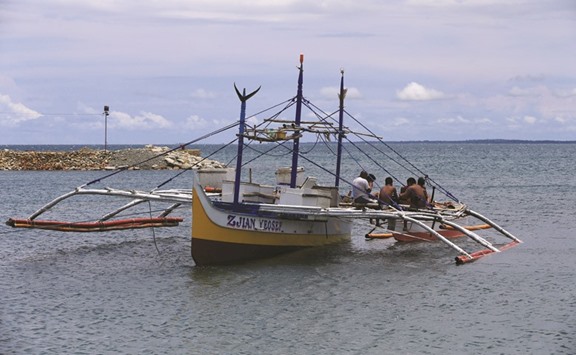Experts in the Philippines are divided over how the country should respond to a tribunal in the Hague, even before the court gives its ruling expected tomorrow on islands contested with Beijing in the South China Sea.
Political and defence analyst Clarita Carlos said she expects the Philippines to continue to engage China either way but does not see Manila pushing Beijing to vacate reclaimed territories.
“As Asians, we don’t kick somebody who is already on the ground,” she said on Friday. “That’s why I like the guidance of (President)
Duterte not to flaunt and not to mock or to taunt.”
New President Rodrigo Duterte has said the Philippines has no interest in armed conflict whatever the verdict and has called on Filipinos not to gloat or be provocative if their cause is favoured by the court.
“To China, face is very important and it doesn’t want to lose face in the international community,” Carlos said. “But it’s got to do something, stop all its provocative building of artificial islands and the destruction of our reefs.”
Even though the ruling will not be enforceable or binding, China should be encouraged to heed it, she said. “Because at a later time, it will need international law to protect its own interests.”
She also said the reclaimed facilities Beijing has been building should be used “as research stations and not as military garrisons.”
“Let scientists from all over the world study the ocean and use the facilities there.”
Foreign Secretary Perfecto Yasay this month told reporters that the Philippines would push for the implementation of the tribunal’s decision through “peaceful negotiations.”
“We should make our statements in a manner that will not be provocative or exacerbate tensions, especially when the ruling could be in the favour of the Philippines,” he said.
“We would like to hope that China will respect the decisions, especially since there is equal possibility that the ruling could be in its favour,” he said.
“Nobody wants war. The Philippines doesn’t want war. China doesn’t want war. The United States doesn’t want war. Japan doesn’t want war.
The rest of the international community does not want war.”
Dindo Manhit, president of Manila-based think tank Stratbase Albert Del Rosario Institute (Stratbase ADRi), said the Philippines should make the most of its moment if it wins.
“On an immediate term, the Philippines must capitalise on the international interest in the case to garner international support for its position and elicit strong statements from other countries,” he said in a statement Friday.“While we pursue diplomatic initiatives, the Philippines needs to take steps to protect itself from any adverse Chinese reaction.
On a medium term, we need to make peace and foster a new era of relations with China based on mutual respect,” he said.
Stratbase ADRi Trustee and International Criminal Court Justice Raul Pangalangan said filing the case was a game changer for the Philippines, which would have been at a disadvantage in a bilateral negotiation setup.
“In a David-versus-Goliath scenario, the Philippines would have been helpless,” he said. “By filing the case, we have shifted it from a two-party settlement and submitted it to a third-party decision-maker in the tribunal.”
Pangalangan added that the arbitration case highlights the primacy of international law and undermines the military aspect of the dispute.
“It will provide our neighbours in Asia and our allies abroad a neutral ground upon which to take a position on the issue,” he said.
“In other words, without states saying ‘China is right’ or ‘Philippines is right,’ we provide even the erstwhile hesitant Asean states an opportunity to take a decision without riling China’s sensitivities,” he added.

Fishermen take a break after returning from a fishing trip in the South China Sea, on the shores of Infanta town, Pangasinan province, northwest of Manila.
